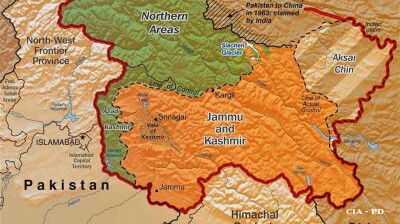The governor of Istanbul refused to allowed an Istanbul Pride march again this year as it has done every year since the first pride march was held in 2014 following the Gezi popular protests the previous summer.
LGBT activist defied the police ban and entered Istanbul’s historic Istiklal Avenue in the centre of Taksim district. The Istanbul Pride Week Committee has read out a press statement to the crowd and journalists on one of the side roads connecting to Istiklal calling for tolerance and the right to publicly demonstrate, bianet reported.
In what is more of a party than a political statement in most other capitals turned into a protests after Turkish President Recep Tayyip Erdogan’s riot police attacked the crowd, firing rubber bullets and teargases after the pride committee had read its statement.
Istanbul’s newly-elected mayor Ekrem Imamoglu was not to be seen and remained silent about the Istanbul Pride. He has not commented on the issue not has the municipality issued any statement, although Reuters reported that he voiced support for the LGBT march in a meeting with foreign media on June 28.
Imamoglu said he would ask the governor why the march had been banned so far, according to Reuters.
However, many CHP municipalities, including Istanbul’s districts, voiced support for gay prides via their social media accounts.
Gay prides are also banned in other cities of Turkey, including Ankara and Izmir.
Populist Erdogan has not expressed ethical or religious objections to the pride marches, but opposes them on political grounds as the Istanbul LGBTI+ community are strongly opposed to Erdogan.
In contrast Erdogan has no problem with the gay movement inside his own party, a groups called AK LGBTI+ that support his ruling Justice and Development Party (AKP).

“The police thought we were Gezi Park activists and mistreated us. Some people mistook our flag for the flag of the [Kurdish Workers’ Party, or PKK]. After we explained who we were, there were only chuckles. In the meantime, however, we met fellow LGBT individuals when they saw us there. We waved our flag right before Erdogan’s eyes. He saw the flag, but said nothing and only smiled. We take it as a positive sign that he said nothing. Thus, we will now keep up the struggle. One of our main projects is to save conservative homosexuals from the environs of ill-minded LGBT people,” one of the AK LGBTI+ members said back in 2014 when they raised a LGBTI+ flag at an Erdogan rally for the first time in 2014.
Prior to 2014, Istanbul Pride had been the largest one in the region and it had been held each year without interruption from 2003 to 2013.
However, as Erdogan began to tighten his grip on the political process and became increasingly authoritarian following the 2008 global crisis, the Istanbul Pride metamorphosed into protest aimed specifically at Erdogan and the authorities tolerance of the event evaporated.
Istanbul’s LGBTI+ community was a leading contributor to the Gezi popular protests in 2013 and Istanbul Pride has been banned ever since, together with any other kind of protests in the country.
Following the failed coup d’état attempt in July 2016 the crack down on public dissent has become even stricter. Erdogan’s riot police has violently attacked anyone who attempts any kind of demonstration, even individual protests or those that just voicing discomfort.

Features

The EU needs to change to stay geopolitically relevant
Leading EU figures are pushing for the unanimity rule used to make important decisions to be dropped to enable faster enlargement — one of the bloc’s main tools for geopolitical influence.

BEYOND THE BOSPORUS: Prosecutors make move on “fictitious export schemes” of Istanbul Gold Refinery
Observers point to intra-regime gangs seizing each other’s wealth, remember Erdogan’s “Hello Fatih” phone calls and ponder whether wanted man Turgay Ciner is in London.

Taliban visit to India upsets Pakistan, signals New Delhi's changing Afghan posture
Coinciding with the visit, Pakistan conducted military operations inside Afghanistan, followed by airstrikes on multiple border towns. Retaliation against Pakistan's police training facilities and border outposts followed.

Pakistan’s India-shaped chip on the shoulder, and why a peaceful coexistence is as elusive as ever
Pakistan must first redefine how it sees India - not solely as a threat to be contained but as a neighbour with whom coexistence is unavoidable. That psychological leap has eluded generations of Pakistani leaders.



